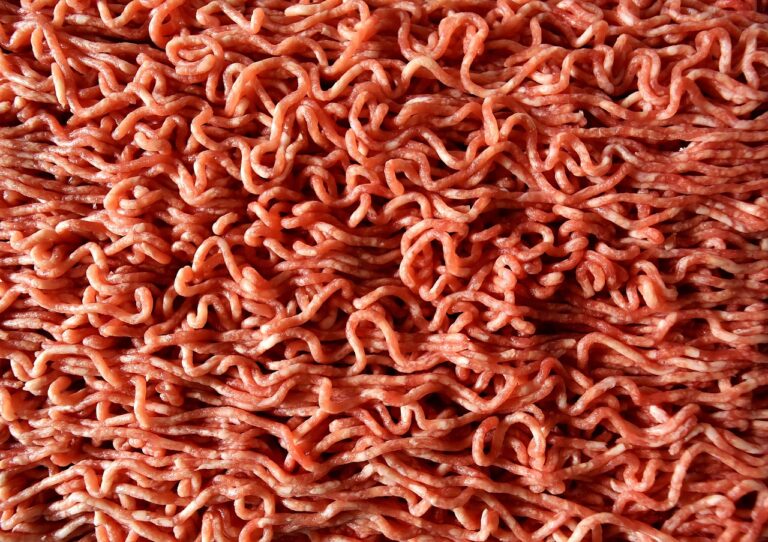Understanding the Connection Between Diet and Digestive Disorders: Skyexch, World777, Goldsbet login
skyexch, world777, goldsbet login: Understanding the Connection Between Diet and Digestive Disorders
Digestive disorders are incredibly common, with millions of people worldwide experiencing discomfort, pain, and other symptoms that impact their quality of life. While there are various causes of digestive disorders, one of the most significant factors is diet. The foods we eat play a crucial role in the health of our digestive system, and making smart dietary choices can help prevent and manage digestive issues.
In this article, we will explore the connection between diet and digestive disorders, how certain foods can trigger or exacerbate digestive symptoms, and what you can do to improve your gut health through your diet.
The Basics of Digestive Disorders
Before we dive into the impact of diet on digestive disorders, let’s first understand what digestive disorders are and how they can manifest. Digestive disorders encompass a wide range of conditions that affect the gastrointestinal (GI) tract, which includes the stomach, intestines, liver, and pancreas.
Common digestive disorders include:
– Irritable Bowel Syndrome (IBS)
– Acid Reflux
– Crohn’s Disease
– Ulcerative Colitis
– Celiac Disease
– Gallstones
These conditions can cause a variety of symptoms, such as bloating, gas, diarrhea, constipation, abdominal pain, and more. The severity of these symptoms can vary from person to person, and they can significantly impact your overall well-being.
The Impact of Diet on Digestive Disorders
Diet plays a crucial role in the development and management of digestive disorders. Certain foods can trigger inflammation, disrupt the balance of gut bacteria, or cause irritation to the digestive tract, leading to symptoms and flare-ups of underlying conditions.
Here are some ways in which diet can impact digestive disorders:
1. Inflammation: Foods high in sugar, refined carbohydrates, and unhealthy fats can promote inflammation in the body, including the GI tract. Inflammation is a common factor in many digestive disorders, such as Crohn’s disease and ulcerative colitis, and can worsen symptoms.
2. Gut Microbiome: The gut microbiome, which consists of trillions of bacteria that live in your digestive tract, plays a vital role in digestion, immunity, and overall health. A diet high in processed foods and low in fiber can disrupt the balance of good and bad bacteria in the gut, leading to dysbiosis and digestive issues.
3. Food Sensitivities: Some people may have food sensitivities or intolerances that can trigger digestive symptoms. Common culprits include dairy, gluten, and FODMAPs (fermentable oligosaccharides, disaccharides, monosaccharides, and polyols), which can cause bloating, gas, diarrhea, and abdominal pain in sensitive individuals.
4. Nutrient Absorption: Certain digestive disorders, such as celiac disease, can impair the body’s ability to absorb nutrients from food. This can lead to deficiencies in essential vitamins and minerals, impacting overall health and well-being.
By understanding how diet can impact digestive health, you can make informed choices about the foods you eat and take steps to improve your gut health.
Improving Digestive Health Through Diet
While everyone’s digestive system is unique, there are some general principles that can help promote digestive health and reduce the risk of digestive disorders. Here are some diet tips to consider:
1. Eat a Balanced Diet: Focus on whole, unprocessed foods, including fruits, vegetables, whole grains, lean proteins, and healthy fats. These foods provide essential nutrients and fiber that support digestive health.
2. Increase Fiber Intake: Fiber is crucial for promoting regular bowel movements and feeding beneficial gut bacteria. Aim to include a variety of high-fiber foods in your diet, such as fruits, vegetables, legumes, and whole grains.
3. Stay Hydrated: Drinking an adequate amount of water is essential for proper digestion. Water helps soften stools, prevent constipation, and support overall gut health.
4. Limit Trigger Foods: If you have a known food sensitivity or intolerance, such as lactose or gluten intolerance, try to avoid or limit these foods to reduce digestive symptoms.
5. Manage Stress: Stress can exacerbate digestive issues, so finding ways to manage stress, such as through relaxation techniques, exercise, or mindfulness practices, can help support overall digestive health.
6. Consider Probiotic Foods: Probiotic-rich foods, such as yogurt, kefir, sauerkraut, and kimchi, contain beneficial bacteria that can support a healthy gut microbiome.
By incorporating these dietary changes into your lifestyle, you can support your digestive health and reduce the risk of developing digestive disorders.
FAQs
Q: Can diet cure digestive disorders?
A: While diet alone may not cure all digestive disorders, making smart dietary choices can help manage symptoms and improve overall gut health. In some cases, certain diets, such as the low FODMAP diet for IBS or the gluten-free diet for celiac disease, may be recommended as part of a treatment plan.
Q: Are there specific foods that can help with digestion?
A: Yes, several foods can support digestion and promote gut health. These include high-fiber foods, probiotic-rich foods, fermented foods, and foods high in digestive enzymes, such as pineapple and papaya.
Q: How long does it take to see improvements in digestive symptoms after changing your diet?
A: The timeline for seeing improvements in digestive symptoms can vary depending on the individual and the underlying condition. Some people may notice changes within a few days or weeks, while others may take longer to see significant improvements. It’s essential to be patient and consistent with dietary changes to allow your body time to adjust.
In conclusion, diet plays a crucial role in the development and management of digestive disorders. By understanding how certain foods can impact the digestive system and making informed dietary choices, you can support your gut health and reduce the risk of digestive issues. Remember to focus on whole, unprocessed foods, increase fiber intake, stay hydrated, limit trigger foods, manage stress, and consider incorporating probiotic-rich foods into your diet for optimal digestive health. By prioritizing your gut health through your diet, you can take proactive steps towards improving your overall well-being.







